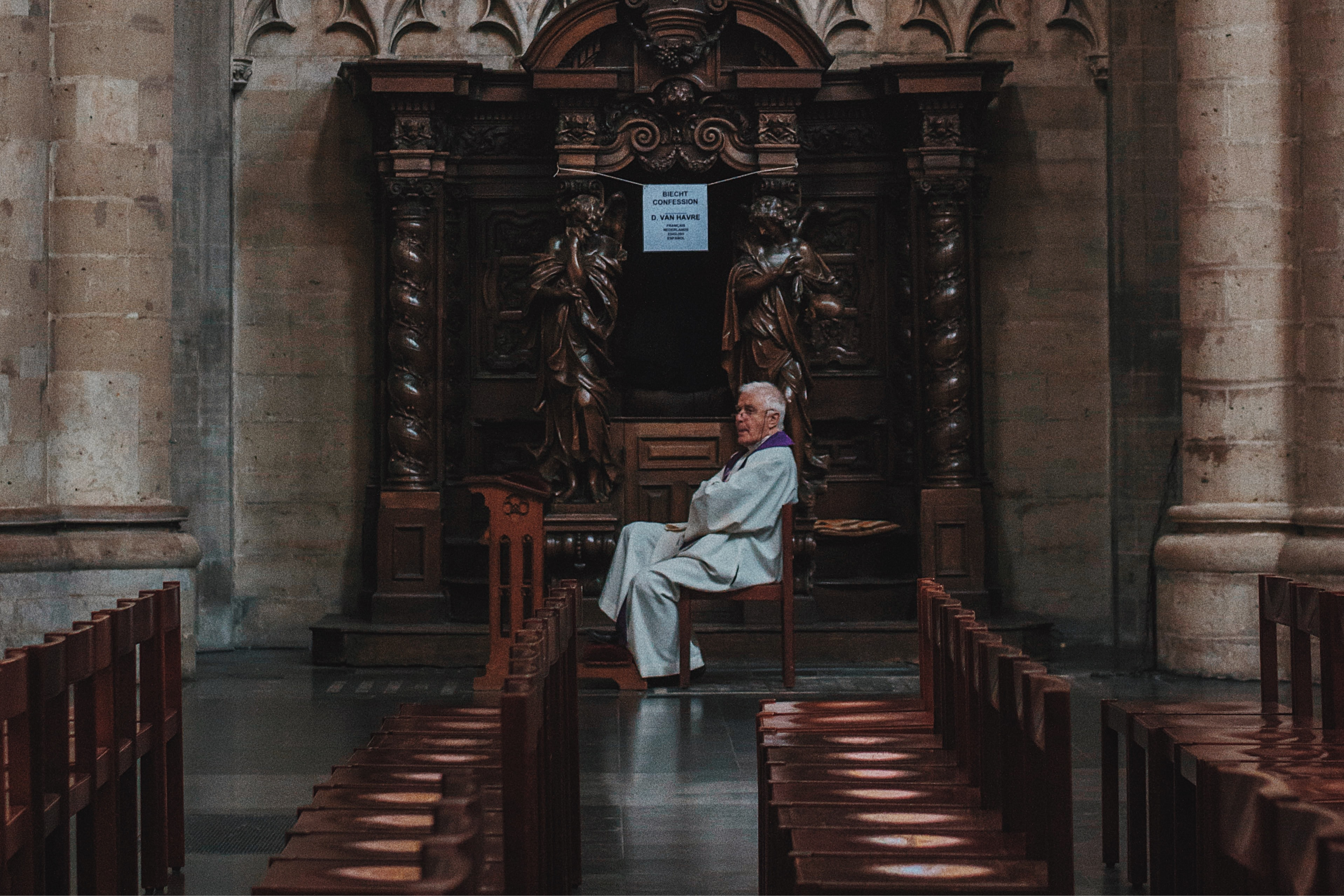Pope Francis
“How good it feels to come back to him whenever we are lost! Let me say this once more: God never tires of forgiving us; we are the ones who tire of seeking his mercy. Christ, who told us to forgive one another ‘seventy times seven’ (Mt 18:22) has given us his example: he has forgiven us seventy times seven. Time and time again he bears us on his shoulders. No one can strip us of the dignity bestowed upon us by this boundless and unfailing love. With a tenderness which never disappoints, but is always capable of restoring our joy, he makes it possible for us to lift up our heads and to start anew. Let us not flee from the resurrection of Jesus, let us never give up, come what will. May nothing inspire more than his life, which impels us onwards!”
(Evangelii Gaudium, 3)
“An evangelising community knows that the Lord has taken the initiative, he has loved us first (cf. 1 Jn 4:19), and therefore we can move forward, boldly take the initiative, go out to others, seek those who have fallen away, stand at the crossroads and welcome the outcast. Such a community has an endless desire to show mercy, the fruit of its own experience of the power of the Father’s infinite mercy. Let us try a little harder to take the first step and to become involved. Jesus washed the feet of his disciples. The Lord gets involved and he involves his own, as he kneels to wash their feet. He tells his disciples: ‘You will be blessed if you do this’ (Jn 13:17).”
(EG, 24)
“I want to remind priests that the confessional must not be a torture chamber but rather an encounter with the Lord’s mercy which spurs us on to do our best. A small step, in the midst of great human limitations, can be more pleasing to God than a life which appears outwardly in order but moves through the day without confronting great difficulties. Everyone needs to be touched by the comfort and attraction of God’s saving love, which is mysteriously at work in each person, above and beyond their faults and failings.”
(EG, 44)
“The Church must be a place of mercy freely given, where everyone can feel welcomed, loved, forgiven and encouraged to live the good life of the
Gospel.”
(EG, 114)
Pope Emeritus Benedict XVI
“The message that shines out from this Gospel passage is eloquent: God forgives all to those who love much. Those who trust in themselves and in their own merits are, as it were, blinded by their ego and their heart is hardened in sin. Those, on the other hand, who recognise that they are weak and sinful entrust themselves to God and obtain from him grace and forgiveness. It is precisely this message that must be transmitted: what counts most is to make people understand that in the Sacrament of Reconciliation, whatever the sin committed, if it is humbly recognised and the person involved turns with trust to the priest- confessor, he or she never fails to experience the soothing joy of God’s forgiveness.”
(Address to participants in an annual course on matters of conscience, 7th March 2008)
“On experiencing the Lord’s tenderness and forgiveness, the penitent more easily acknowledges the gravity of sin and reinforces his decision to avoid it and to remain and grow in his renewed friendship with him.”
(19th February 2007)
“In the Sacrament of Penance, the simple confession of one’s guilt is presented with confidence in God’s merciful goodness. It is important to do this without falling into scruples, with the spirit of trust proper to the children of God. In this way confession can become an experience of deliverance, in which the weight of the past is removed from us and we can feel rejuvenated by the merit of the grace of God who each time gives back the youthfulness of the heart.”
(2nd May 2002)
St John Paul II
“Confession is an act of honesty and courage – an act of entrusting ourselves, beyond sin, to the mercy of a loving and forgiving God.”
(14th September 1987)
“The two sacraments of the Eucharist and Penance are very closely connected. Because the Eucharist makes present the redeeming sacrifice of the Cross, perpetuating it sacramentally, it naturally gives rise to a continuous need for conversion, for a personal response to the appeal made by St Paul to the Christians of Corinth: ‘We beseech you on behalf of Christ, be reconciled to God’ (2 Cor 5:20). If a Christian’s conscience is burdened by serious sin, then the path of penance through the sacrament of Reconciliation becomes necessary for full participation in the Eucharistic Sacrifice.”
(Ecclesia de Eucharistia, 37)
“It is thanks to the medicine of confession that the experience of sin does not degenerate into despair. The Rite of Penance alludes to this healing aspect of the sacrament, to which modern man is perhaps more sensitive, seeing as he does in sin the element of error but even more the element of weakness and human frailty.”
(Reconciliatio et Paenitentia, 11)
“I also wish to pay homage to the innumerable host of holy and almost always anonymous confessors
to whom is owed the salvation of so many souls who have been helped by them in conversion, in the struggle against sin and temptation, in spiritual progress and, in a word, in achieving holiness. I do not hesitate to say that even the great canonised saints are generally the fruit of those confessionals.”
(RP, 29)
St Thomas Aquinas
“In the life of the body a man is sometimes sick, and unless he takes medicine, he will die. Even so in
the spiritual life a man is sick on account of sin. For that reason he needs medicine so that he may be restored to health; and this grace is bestowed in the Sacrament of Penance.”
Jesus to St Faustina
“Daughter, when you go to confession, to this fountain of My mercy, the Blood and Water which came forth from My Heart always flows down upon your soul and ennobles it. Every time you go to confession, immerse yourself in My mercy, with great trust, so that I may pour the bounty of My grace upon your soul. When you approach the confessional, know this, that I Myself am waiting there for you. I am only hidden by the priest, but I Myself act in your soul. Here the misery of the soul meets the God of mercy. Tell souls that from this fount of mercy souls draw graces solely with the vessel of trust. If their trust is great, there is no limit to My generosity.”
(Divine Mercy in My Soul)
St Francis de Sales
“Go to your confessor; open your heart to him; display to him all the recesses of your soul; take the advice that he will give you with the utmost humility and simplicity. For God, Who has an infinite love for obedience, frequently renders profitable the counsels we take from others, but especially from those who are the guides of our souls.”
St Josemaría Escrivá
“You revealed your past wounds – full of pus – in Confession. And the priest dealt with your
soul like a good doctor, like a conscientious doctor. He made an incision where he had to, and would not let the wound heal over until everything had been cleaned out. Be grateful.”
(Furrow, 168)
St John XXIII
“Doing penance for one’s sins is a first step towards obtaining forgiveness and winning eternal salvation. That is the clear and explicit teaching of Christ, and no one can fail to see how justified and how right the Catholic Church has always been in constantly insisting on this. She is the spokesman for her divine Redeemer. No individual Christian can grow in perfection, nor can Christianity gain in vigour, except it be on the basis of penance.”
(Paenitentiam Agere, 1)

